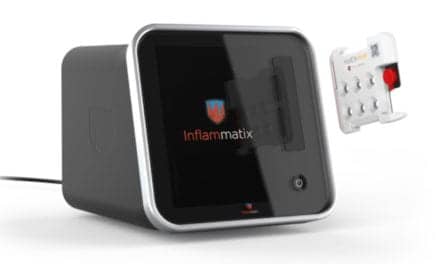The NuView Diagnostics subsidiary of NuView Life Sciences, Park City, Utah, has recently released the results of a validation study of the company’s proprietary NV-VPAC1 urine-based test for prostate cancer.
NuView Diagnostics is a prerevenue company that is using its patented peptide analog technology, NV-VPAC1, to develop and commercialize precision in vitro diagnostics for cancer. NV-VPAC1 tests consist of a series of peptide analogs that target the vasoactive intestinal peptide receptor type 1 (VPAC1), which becomes overexpressed in certain key malignancies, including breast, bladder, colon, endometrial, and prostate cancers. By attaching a molecular imaging or therapeutic component to an NV-VPAC1 peptide, NuView Diagnostics is hoping to develop a series of precisely targeted products that may be used in the diagnosis and treatment of cancer.
In the United States, prostate cancer is the third most commonly diagnosed cancer and the third leading cause of cancer deaths in men. A significant challenge in fighting the disease is the need to identify an accurate means of screening that is not as invasive or risky as methods involving tissue biopsy. The relative risks and benefits of screening for prostate cancer using prostate-specific antigen as a biomarker are highly controversial.
“There has been a clear and critical need for better diagnosis,” notes Paul Crowe, CEO of NuView Life Sciences. “We need noninvasive precision diagnostics to reduce risk in the method itself and improve patient outcomes.”
The NV-VPAC1 test is currently undergoing clinical trials to determine its suitability as a diagnostic for prostate cancer. The validation study led by Jay Bishoff, MD, director of the urological institute at Intermountain Healthcare, Salt Lake City, found that tumor cells shed in voided urine specimens of patients with prostate cancer can be imaged optically by targeting VPAC1 receptors with NV-VPAC1.1
The double-blind study evaluated the NV-VPAC1 test in subjects with biopsy-confirmed prostate cancer, benign prostatic hyperplasia (BPH), or bladder or kidney stones. By comparing the detection results among patients with prostate cancer to those of the control group (subjects with benign prostate hyperplasia, or bladder or kidney stones), researchers found that the NV-VPAC1 test had a sensitivity of 85% and specificity of 75%—both results superior to tests currently on the market.
According to the company, results of the validation study have increased the interest of opinion leaders in NuView’s NV-VPAC1 technology, leading to requests to participate in further evaluations of the test. Researchers at India’s KLE University have recently initiated a similar trial using the NV-VPAC1 peptide analog.
Stephane Allard, MD, chief medical officer at NuView Life Sciences, says that the next step in development of the NV-VPAC1 assay will be to automate its processes, in order to remove any subjectivity on the part of the pathologist interpreting the results.
“We can expect to see newer approaches diagnosing and treating cancer in the near future,” Crowe adds. “These new technologies will help increase the likelihood of personalized treatments being effective in eliminating cancer in diagnosed patients.”
For further information, visit NuView Life Sciences.
Reference
- Trabulsi EJ, Tripathi SK, Gomella L, Solomides C, Wickstrom E, Thakur ML. Development of a voided urine assay for detecting prostate cancer noninvasively: a pilot study. BJU Int. 2017;119(6):885–895; doi: 10.1111/bju.13775.
Featured image: Paul Crowe, NuView Life Sciences.




